As smoke moves across the region, campus sits at the epicenter of what Governor Kathy Hochul is calling “an emergency crisis.”
Air quality in New York City deteriorated Wednesday as smoke-filled air from hundreds of wildfires in eastern Canada continued to blanket the city. The New York Department of Health is advising all residents to stay inside when possible, and those with health conditions are urged to wear a mask when traveling outdoors. The New York State Department of Environmental Conservation has extended its Air Quality Health Advisory until 11:59 pm on Thursday, June 8.
An email sent Wednesday afternoon from Columbia’s Emergency Management Operations Team advised that “members of the Columbia community are encouraged to limit their outdoor activities through the end of the Air Quality Alerts,” and “using face masks when outdoors is encouraged.” The email further encourages shutting and locking all windows on campus. The full text of the email can be found below.
Amid the unsafe air quality, the city has restricted outdoor events: New York public schools have canceled all outside activities, including recess and sports; Major League Baseball postponed Wednesday’s game between the Yankees and the Chicago White Sox, and New York City Zoos and the New York Public Library closed early. Governor Hochul announced that 1 Million N95 masks would be available statewide and distributed at MTA train stations and the Jacob Javits Center.
Students currently living on campus found themselves engulfed in a gray or yellow haze as they commuted and began their day. Mel Yu (CC ’25) said that “walking to work felt like walking into a post-apocalyptic movie–the air was so thick with smoke that you could hardly see. And even though I work inside of a lab building with an air filtration system, we were still all inhaling smoke and had to put on masks.” A similar sentiment was shared across social media and captured in the gallery at the end of the article.
Public health officials are warning that the poor air quality is reaching levels that could pose serious health risks to New Yorkers with respiratory and heart conditions. But even people without underlying health conditions may experience the effects.
Dr. Cristopher Tedeschi, Columbia physician and associate professor of emergency medicine, said in an interview with WNYC that “even those without underlying conditions are feeling some of the effects, your eyes get watery, your throat gets itchy.” He added, “When the smoke conditions get to where they are now, we see people with exacerbations of respiratory illnesses like asthma or emphysema or COPD.”
The Air Quality Index peaked at 413 around 4 pm Wednesday—the highest ever value in New York City since the E.P.A. began recording in 1999—but remains in the Hazardous or Very Unhealthy zone. Unfortunately, meteorologists are warning that the air quality could remain poor through Friday. Moreover, climate change experts expect events like these to become more frequent.
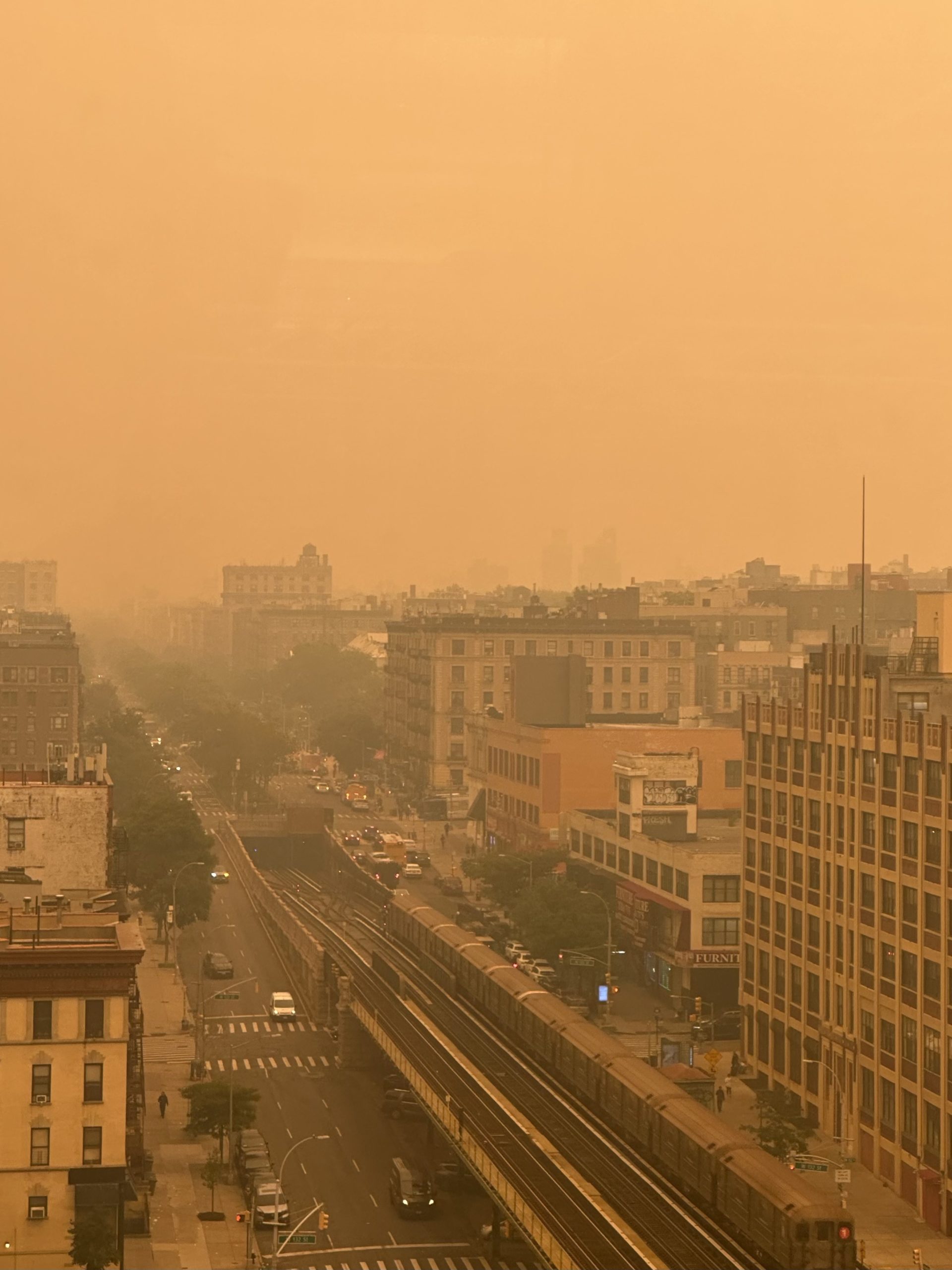
Meteorologist Lauren Casey told Gothamist that “climate change is contributing to the lengthening and the intensifying of the wildfire season, so our wildfires are becoming more frequent, more widespread and more intense.”
On-campus student groups such as the 116th Initiative are collecting mutual aid funds to help unhoused community members. These funds will go toward water, masks, and other facial coverings for those in need. In this vein, Yu also remarked how the current emergency is “an important reminder of the privilege that some of us can be safely sheltered and that environmental issues disproportionately impact those facing socioeconomic disparities.”
Email sent to Columbia students at 2:48 pm on Wednesday, June 7:
Dear Members of the Columbia Community,
As you know if you are currently in the New York City region, the Canadian wildfires are continuing to significantly impact the air quality in our region. The National Weather Service has issued an Air Quality Alert for the New York City region, and the New York State Department of Environmental Conservation has extended its Air Quality Health Advisory for New York City until the end of the day tomorrow (Thursday, June 8).
- Members of the Columbia community are encouraged to limit their outdoor activities through the end of the Air Quality Alerts, which is currently end of tomorrow.
- Limiting outdoor activities and using face masks when outdoors is encouraged.
Help us protect our campus by closing and locking all windows and blinds, especially in spaces that are not normally occupied. Additionally, to report an emergency on campus 24/7, call Public Safety at 212-854-5555 at Morningside, 212-853-3333 at Manhattanville, or 911 immediately.
Emergency Management Operations Team
Managing Editor Elijah Knodell and Editor-in-Chief Kyle Murray contributed to reporting
Morningside Heights Under Orange Particles via Editor-in-Chief Kyle Murray


 1 Comments
1 Comments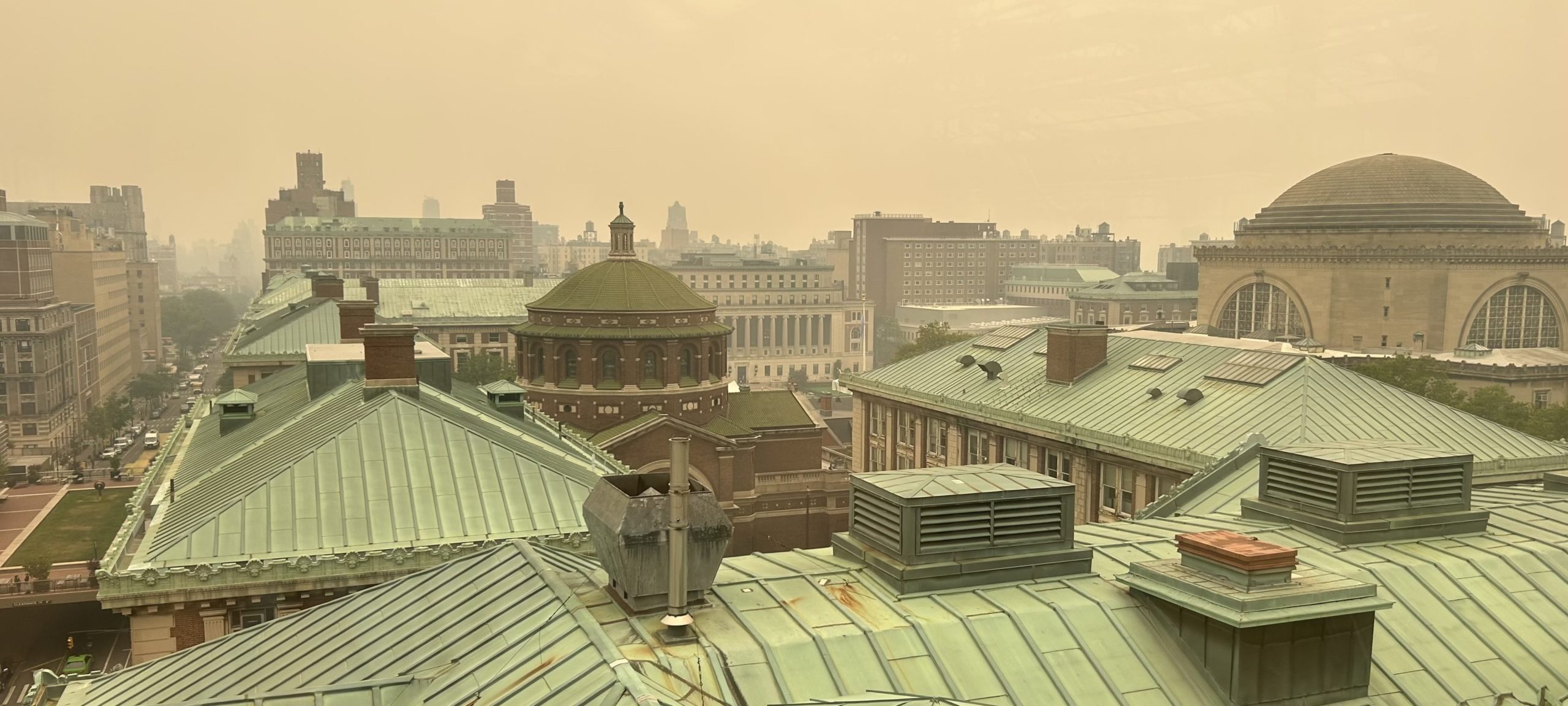
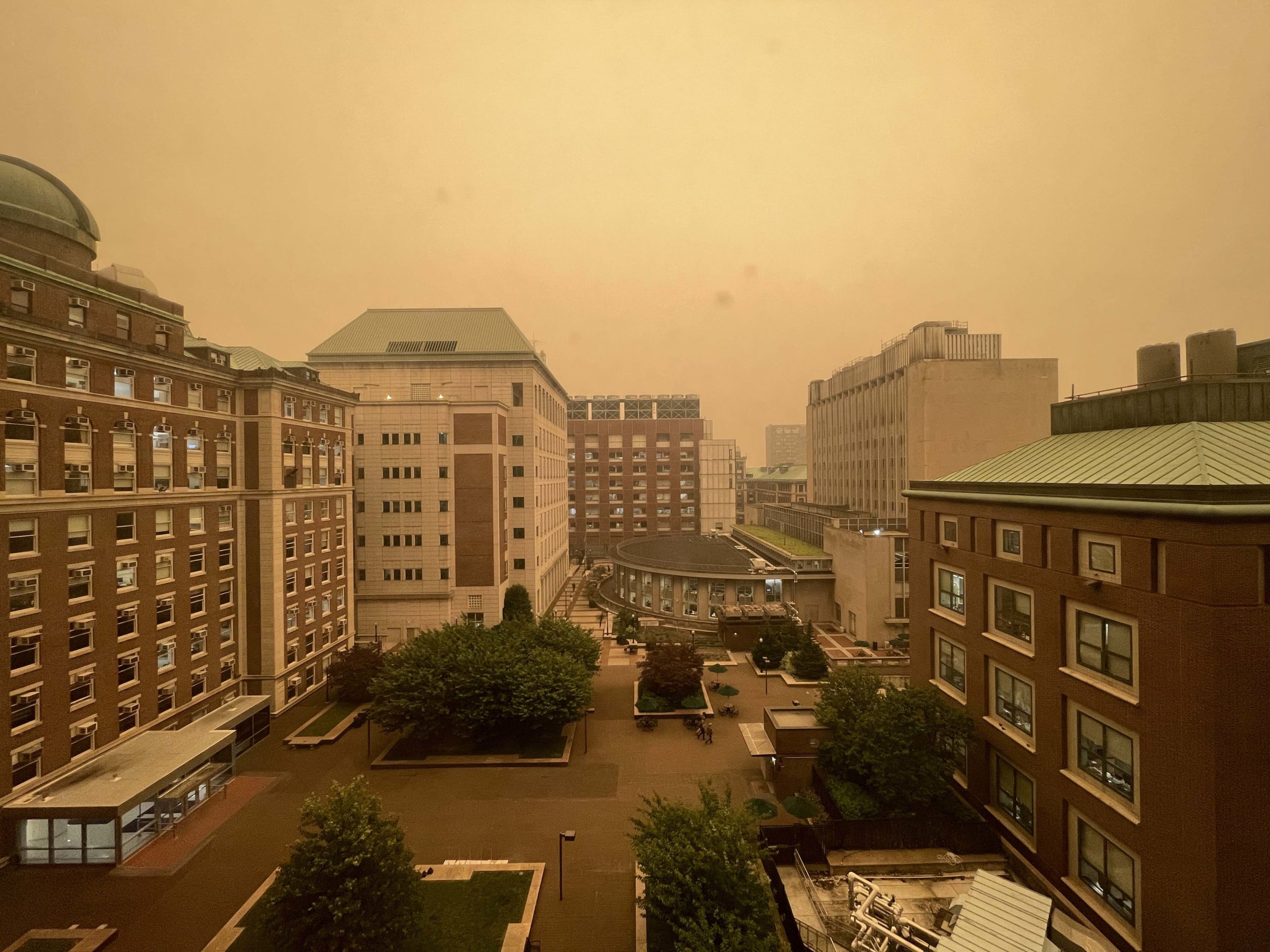
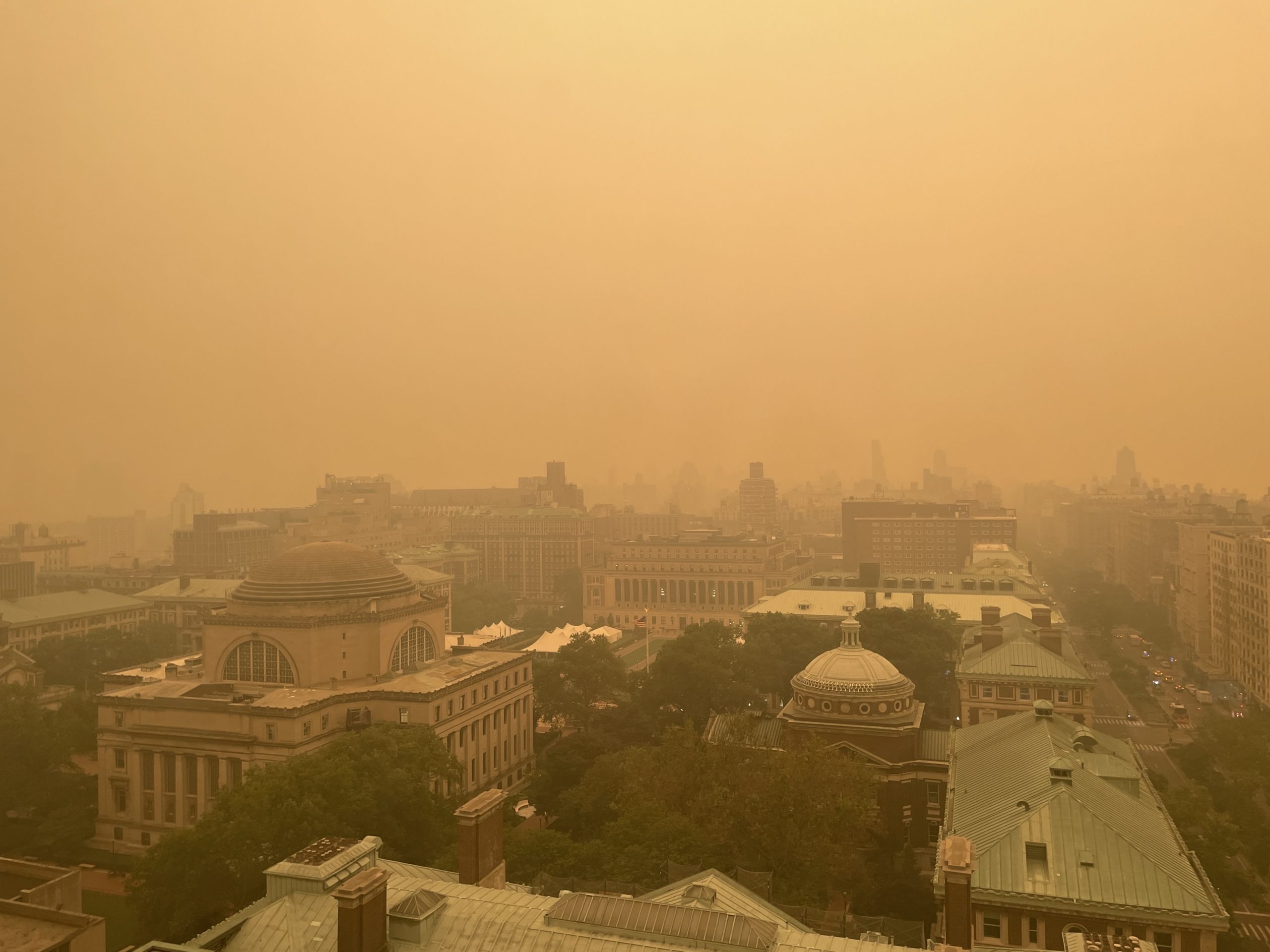
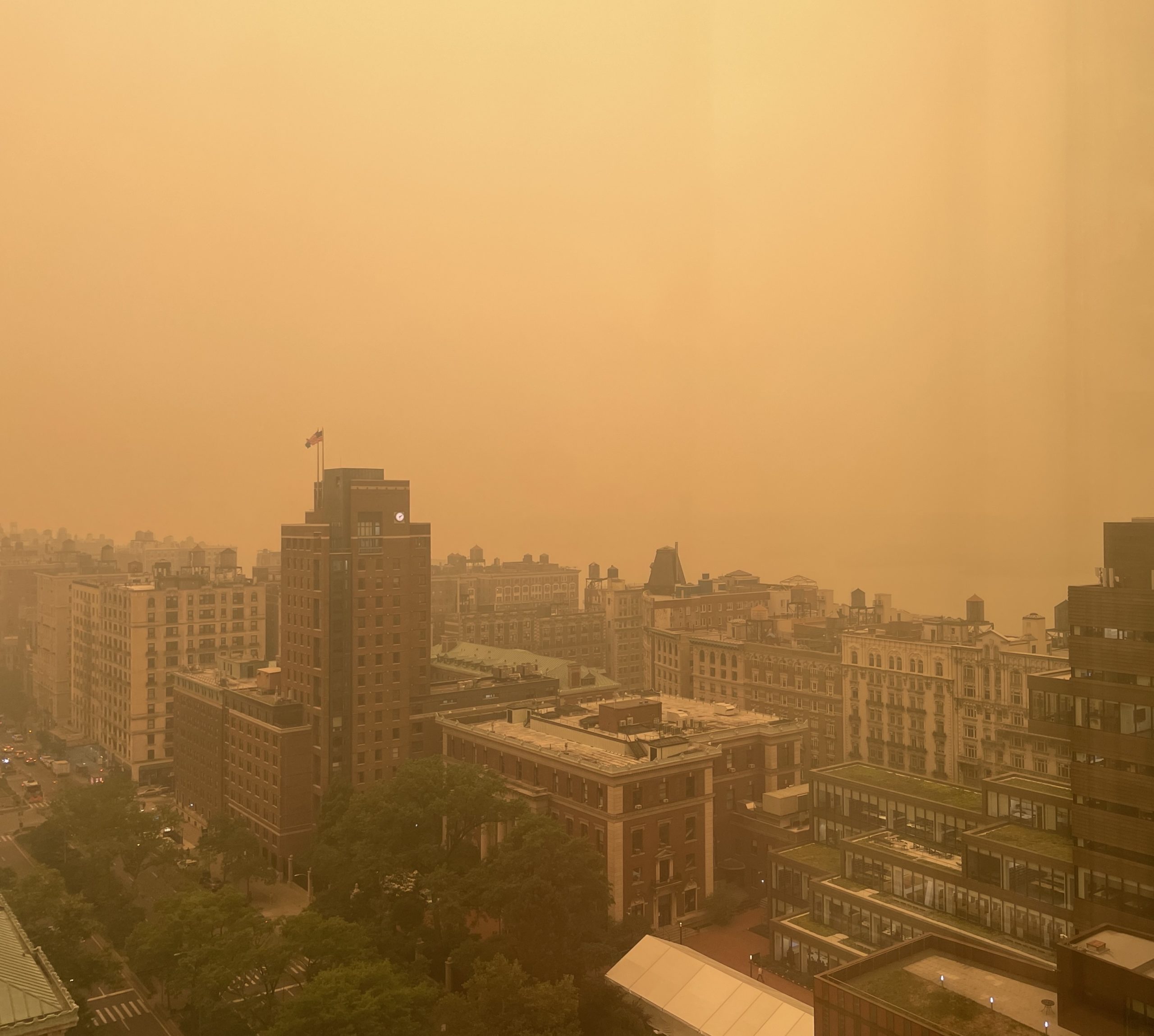
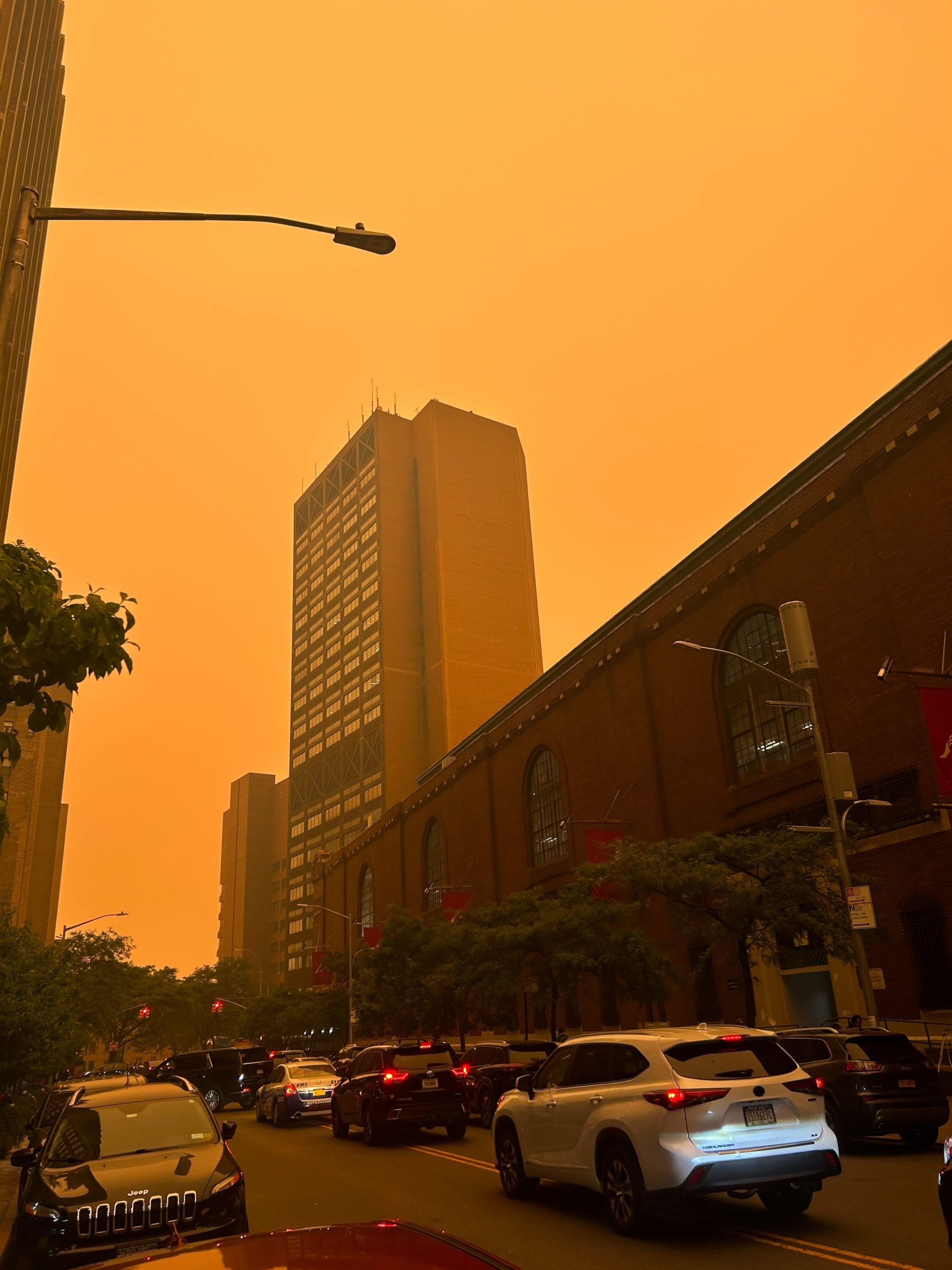
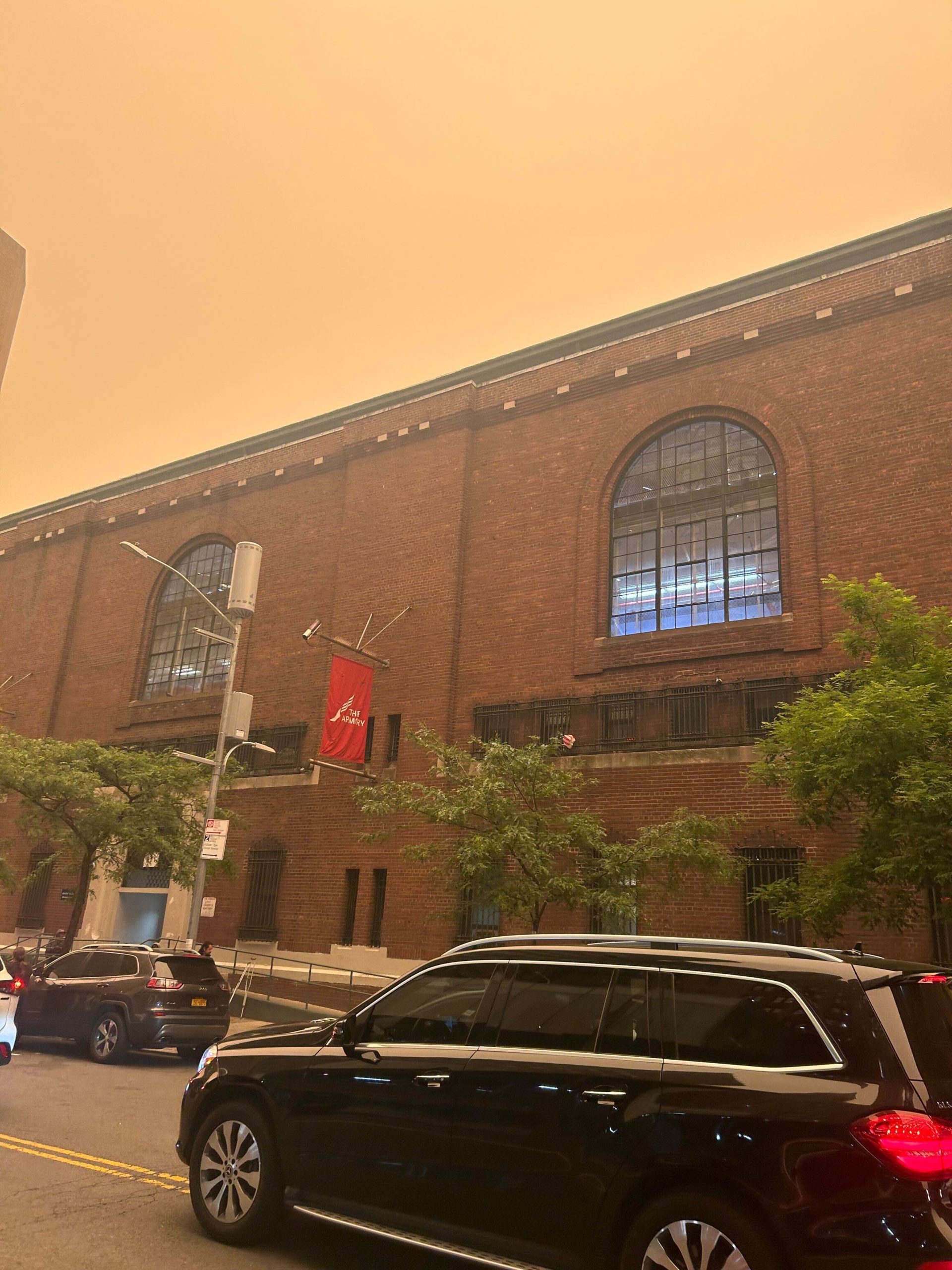
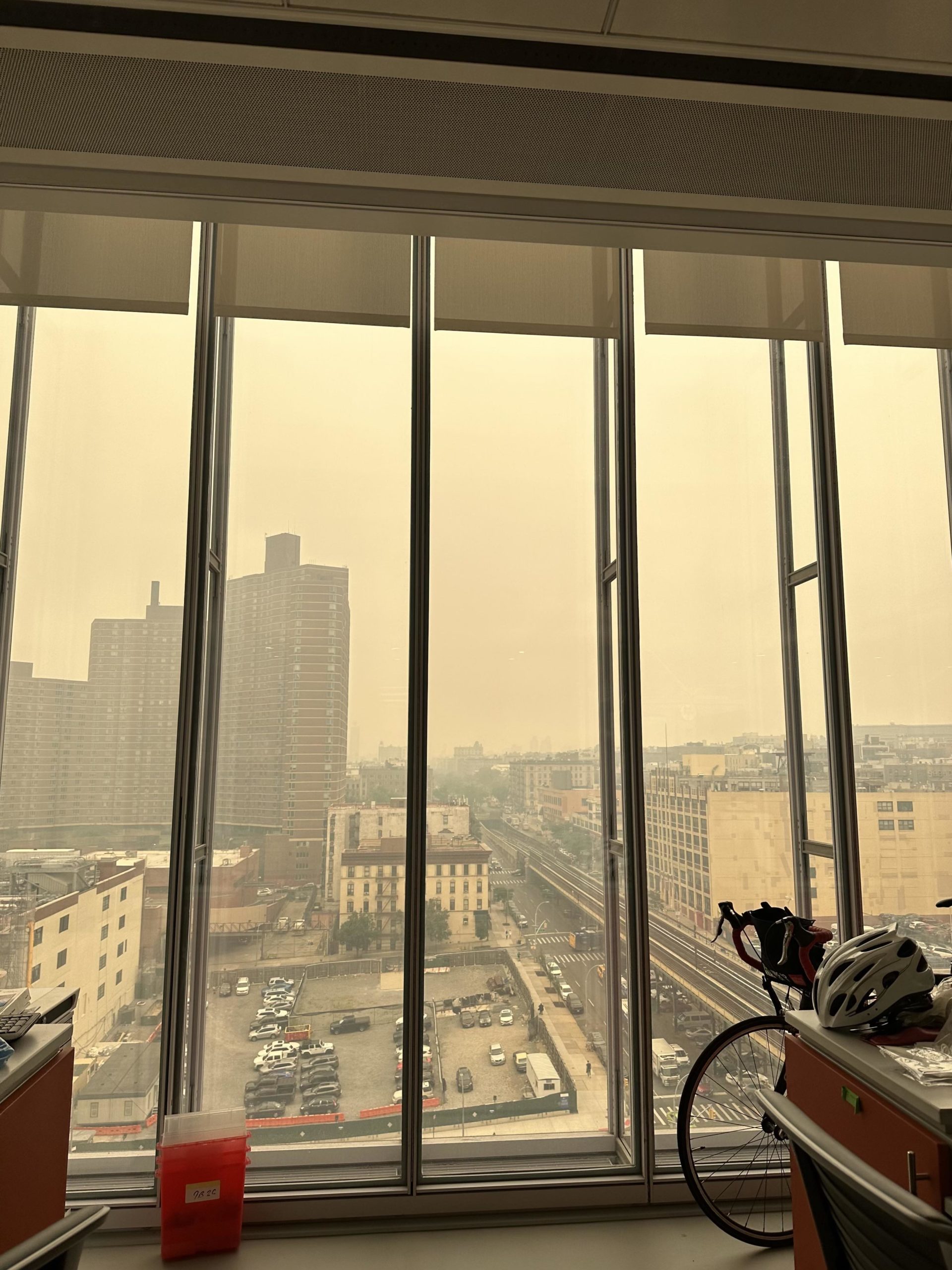
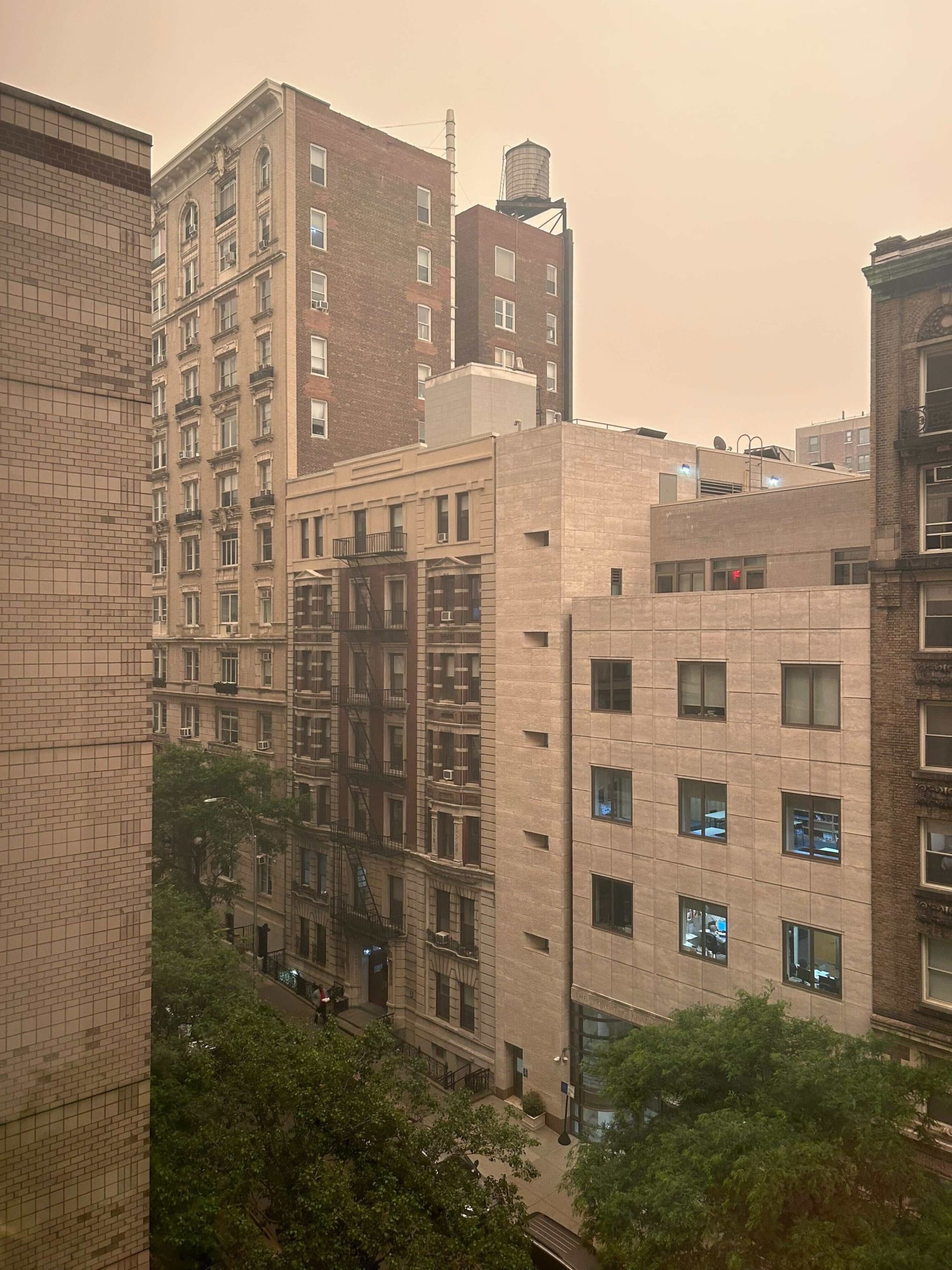
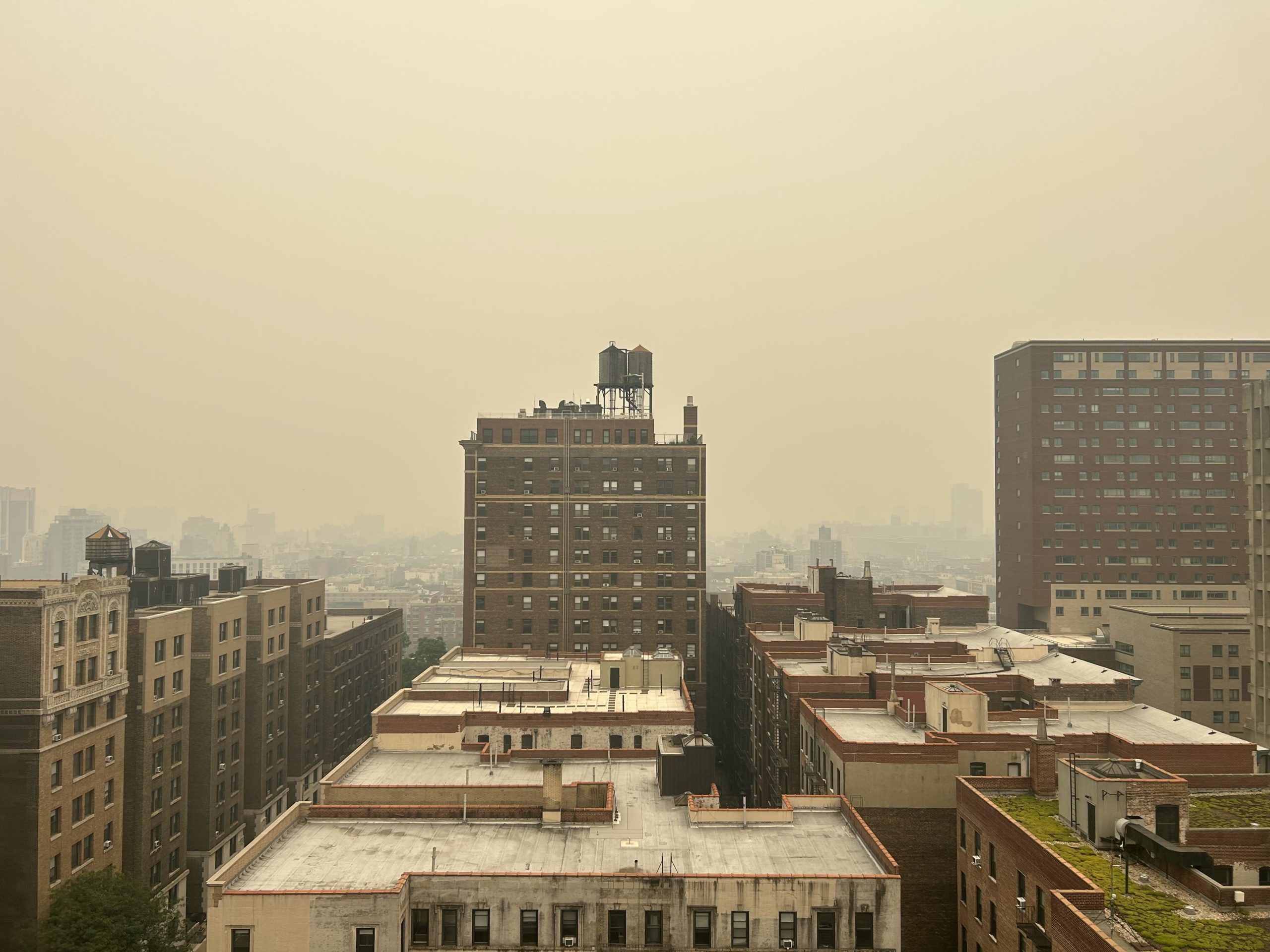
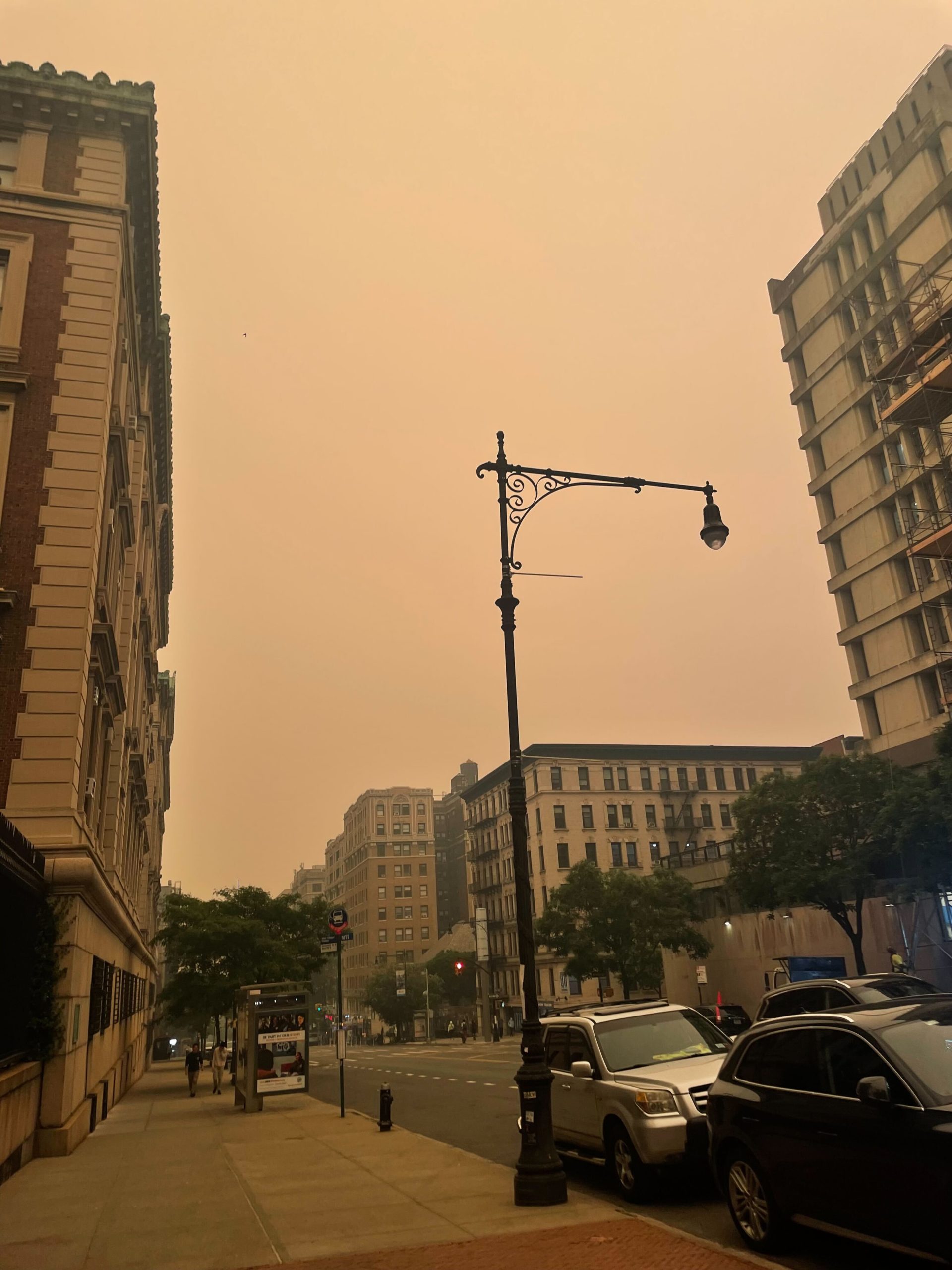
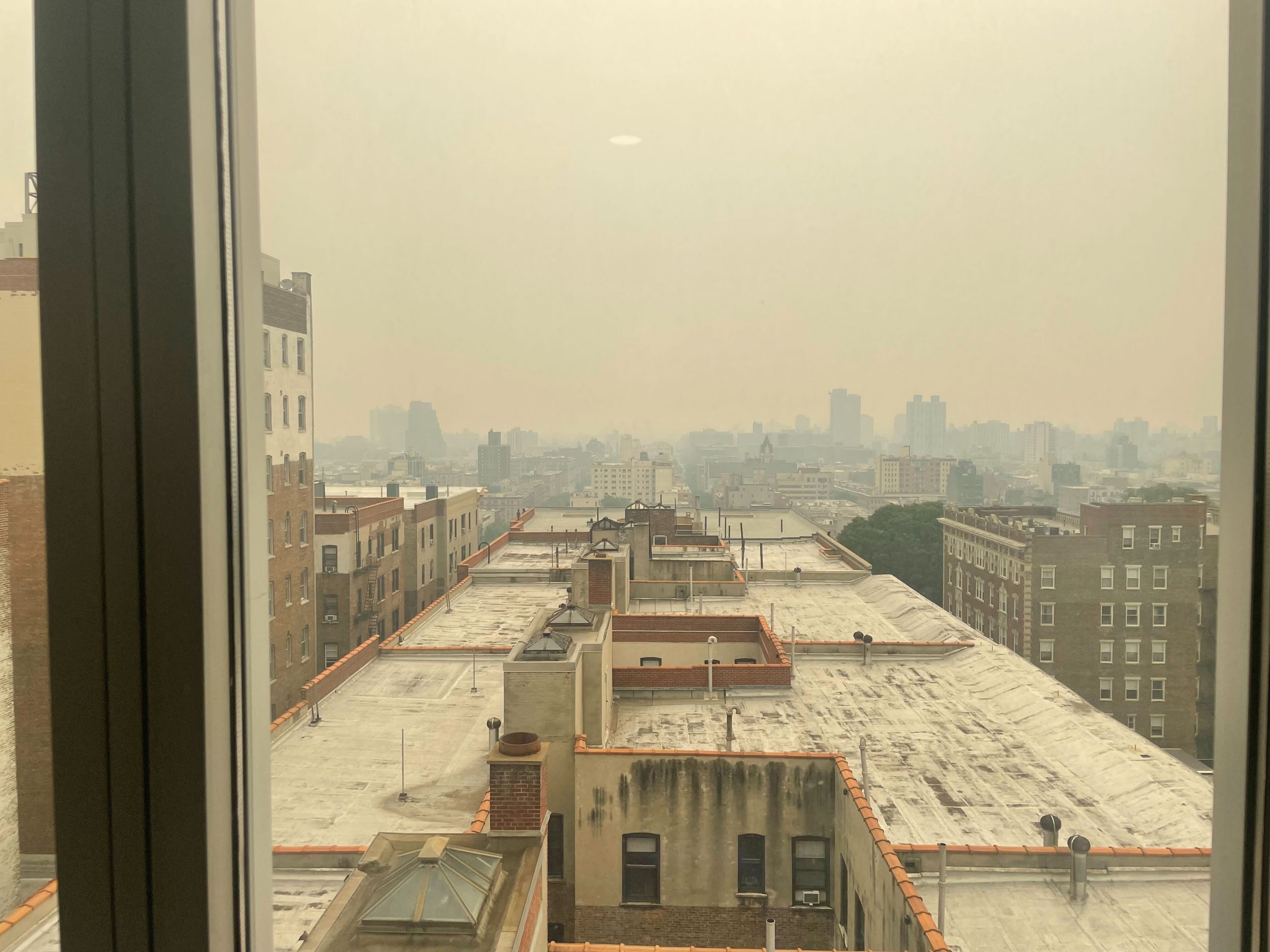

1 Comment
@Harold Smithson Jenningst CC ’49 I enjoyed reading your article and e-mail message, BOWG. I of course no longer live on those streets of Morningside, where I spent not just my colon years, but also a fair portion of my youth, but if I did, the thick haze Dr. Yu so eloquently describes would surely have reminded me of the thick smog that used to descend on New York every few years. Ah, it was a bit hard on the lungs and eyes, but those were the days before figurines, and I must say, I did grow quite fond of the smell.
As always, excellent reporting, and I look forward to reading more.
Harold